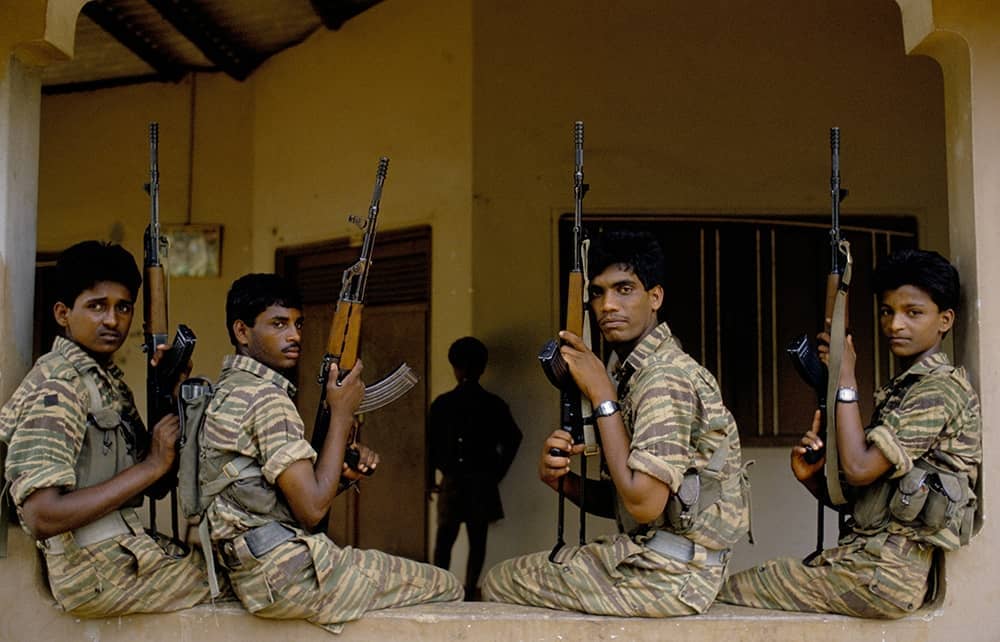Ten years ago Shehan Karunatilaka’s first novel, Chinaman, was published and I raved about it, as did many others. Set in the 1980s, it intertwined the stories of a vanished, forgotten cricketer who was able to bowl unplayable deliveries and the particularly brutal war that was ravaging Sri Lanka. My review ended with the words: ‘Karunatilaka is, I gather, writing another novel, but how it can be as good as this I can hardly imagine.’ We now have that novel, and I was right: it isn’t as good. Which is not to say it’s bad. In fact, there are parts of its design and telling that are very good indeed. But I had problems with it, as you will see.
We are in 1990, and Sri Lanka is as dangerous a place is it was in Chinaman, and in reality. Maali Almeida is a photographer, gay, a gambler, who likes a drink or two; but his Nikon has a cracked lens and is filled with mud because his body was thrown into a lake after he’d been murdered. This is his afterlife.
The afterlife is a bureaucratic nightmare, where ghosts jostle each other exhibiting their fatal wounds
At first I wondered if the novel was going to be a replay of Chinaman. Would there be any cricket in it, perhaps? No: Karunatilaka swerves right away from that on the first page: ‘You left school with a hatred of teams and games and morons who valued them.’ (The book is told throughout in the second person.) The first words of the novel are: ‘You wake up with the answer to the question that everyone asks. The answer is Yes, and the answer is Just Like Here But Worse.’
That’s the afterlife for you: a crowded, bureaucratic nightmare, where ghosts jostle each other, exhibiting the wounds that killed them; and there are plenty of wounds and plenty of ghosts because of the violence tearing the country apart. Imagine an absolutely shambolic version of the afterlife depicted in A Matter of Life and Death. There are echoes of Dante’s hell, too: Almeida spends a night in a tree: ‘Your tree gets crowded with suicides muttering.’ (In Dante, the suicides actually become trees.)
Almeida, we are told, has a cache of photographs which will rock Sri Lanka –gruesome evidence of violence and corruption – and he has seven moons in which to contact his loved ones and lead them to it. A moon in this version of the afterlife is a day, because ‘the moon is always up there, even when you can’t see it’. OK then. Meanwhile, Almeida’s corpse lies dismembered in the depths of Lake Beira, a favoured place for the disposal of the assassinated: ‘On this day, the Beira Lake smells like a powerful deity has squatted over it, emptied its bowels in its waters and forgotten to flush.’
And so we have the novel’s strengths and weaknesses exposed fairly early on. The strengths are its powerful and precise prose style; the weaknesses are those that are typical of magical realism – a succession of impossibilities that have to be assented to before the reader can get on. I found myself asking: does this make Dante a magical realist? No – but let’s address the book’s more pressing problem: how much longer will this go on for? Well, just let me say that it took me many moons to finish it.
You can see why Karunatilaka sets his novel in such a dystopian afterlife: it reflects the reality and at the same time distances itself from it. The ghosts can move around the places ‘wherever your body has been’, and ‘where your name is spoken. But you can’t fly to Paris or the Maldives. Unless your corpse is taken there’. The ghosts can ride winds, ‘like public transport for dead people’. They can move unseen among the living although, because the available locations are limited, the action switches from the perspective of the dead to that of the living from time to time.
This can be confusing. Early on, a note (‘a cheat sheet’) that Almeida wrote for an American journalist is reproduced. It explains the abbreviations of all the factions involved in the civil war – or ‘the Sri Lankan tragedy’, as he more accurately describes it: ‘LTTE – The Liberation Tigers of Tamil Eelam. Want a separate Tamil state. Prepared to slaughter Tamil civilians and moderates to achieve this.’ Everyone is prepared to slaughter everyone. ‘It’s not that complicated, my friend. Don’t try and look for the good guys ‘cause there ain’t none.’
Would that the rest of the book were so clear. Otherwise it is a smorgasbord of ghouls from which you can, with difficulty, pick out the bones of the recent, awful history of the place – if you are not allergic to magical realism. But I’m afraid the genre is not for me. It is Just Like Here But Worse.






Comments